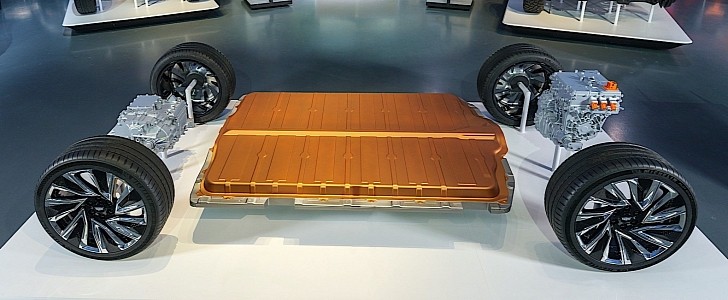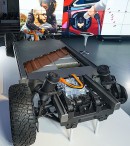GM is throwing piles of cash to accelerate its EV production and this implies building battery factories as well. The Ultium technology that GM develops in partnership with battery maker LG Energy Solution will be key to the company’s success in the EV business. The only problem is the Ultium batteries rely on harmful carbon nanotubes, which might present a problem for GM.
The carbon nanotubes are essentially chemically bonded carbon atoms and can greatly enhance energy storage and heat transfer in a Li-Ion battery. As such, the use of carbon nanotubes is critical to Ultium battery production and a key part of GM’s fight for EV supremacy. Unfortunately, there’s a dark side to the carbon nanotubes too. Being so small, they can penetrate the lungs and cause health issues. This was determined by EPA back in 2011 and it seems that the troubling finding is keeping the agency from greenlighting the use of carbon nanotubes.
That’s why several Michigan members of Congress have sent a letter to the EPA requesting that the regulatory body expedite GM’s request to approve the harmful technology. As reported by the Detroit News, the bipartisan letter to the EPA is dated April 6 and was signed by U.S. Representatives Tim Walberg, R-Tipton, Elissa Slotkin, D-Holly, and Democratic U.S. Senators Debbie Stabenow and Gary Peters.
According to the letter, the carbon nanotube material is critical in opening GM’s new battery production facility in Delta Township. GM recently announced a $7 billion investment in its Michigan-based plants, including a $2.5 billion for battery production at Delta Township. It's expected to create 1,700 new jobs, but those could be in jeopardy without EPA’s approval.
“Given the importance of this project to Michigan and to our country’s EV supply chain, we ask EPA to complete the reviews of the (applications) so that these important EV battery projects are not delayed,” the lawmakers wrote in the letter they sent to EPA.
The approval is already more than two months past the legal deadline. Usually, the agency responds in around three months, but in this case, the EPA seems reluctant to approve the use of carbon nanotubes. If the application is not reviewed by May, it could lead to delays in GM’s launch of its new battery production facility.
That’s why several Michigan members of Congress have sent a letter to the EPA requesting that the regulatory body expedite GM’s request to approve the harmful technology. As reported by the Detroit News, the bipartisan letter to the EPA is dated April 6 and was signed by U.S. Representatives Tim Walberg, R-Tipton, Elissa Slotkin, D-Holly, and Democratic U.S. Senators Debbie Stabenow and Gary Peters.
According to the letter, the carbon nanotube material is critical in opening GM’s new battery production facility in Delta Township. GM recently announced a $7 billion investment in its Michigan-based plants, including a $2.5 billion for battery production at Delta Township. It's expected to create 1,700 new jobs, but those could be in jeopardy without EPA’s approval.
“Given the importance of this project to Michigan and to our country’s EV supply chain, we ask EPA to complete the reviews of the (applications) so that these important EV battery projects are not delayed,” the lawmakers wrote in the letter they sent to EPA.
The approval is already more than two months past the legal deadline. Usually, the agency responds in around three months, but in this case, the EPA seems reluctant to approve the use of carbon nanotubes. If the application is not reviewed by May, it could lead to delays in GM’s launch of its new battery production facility.







